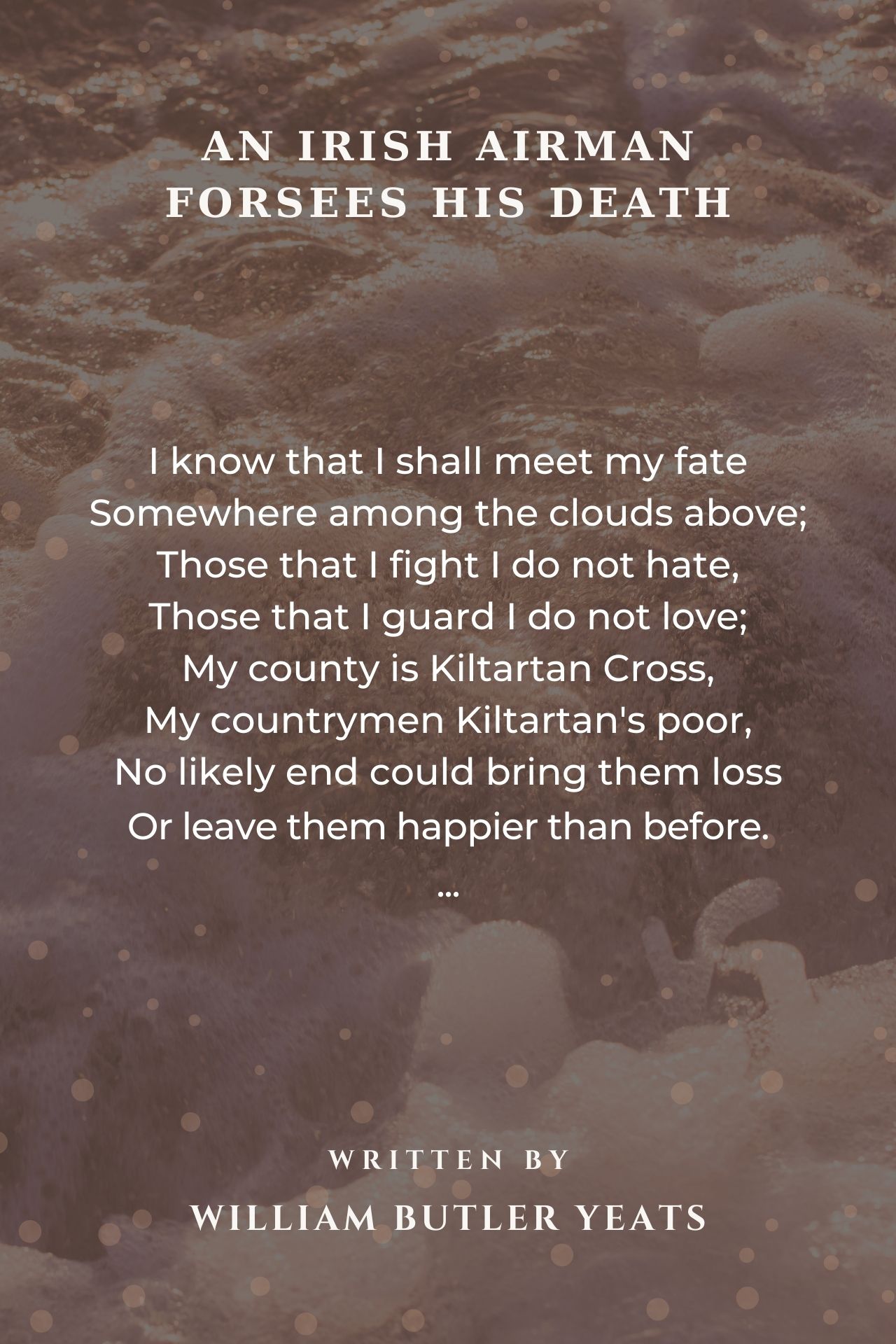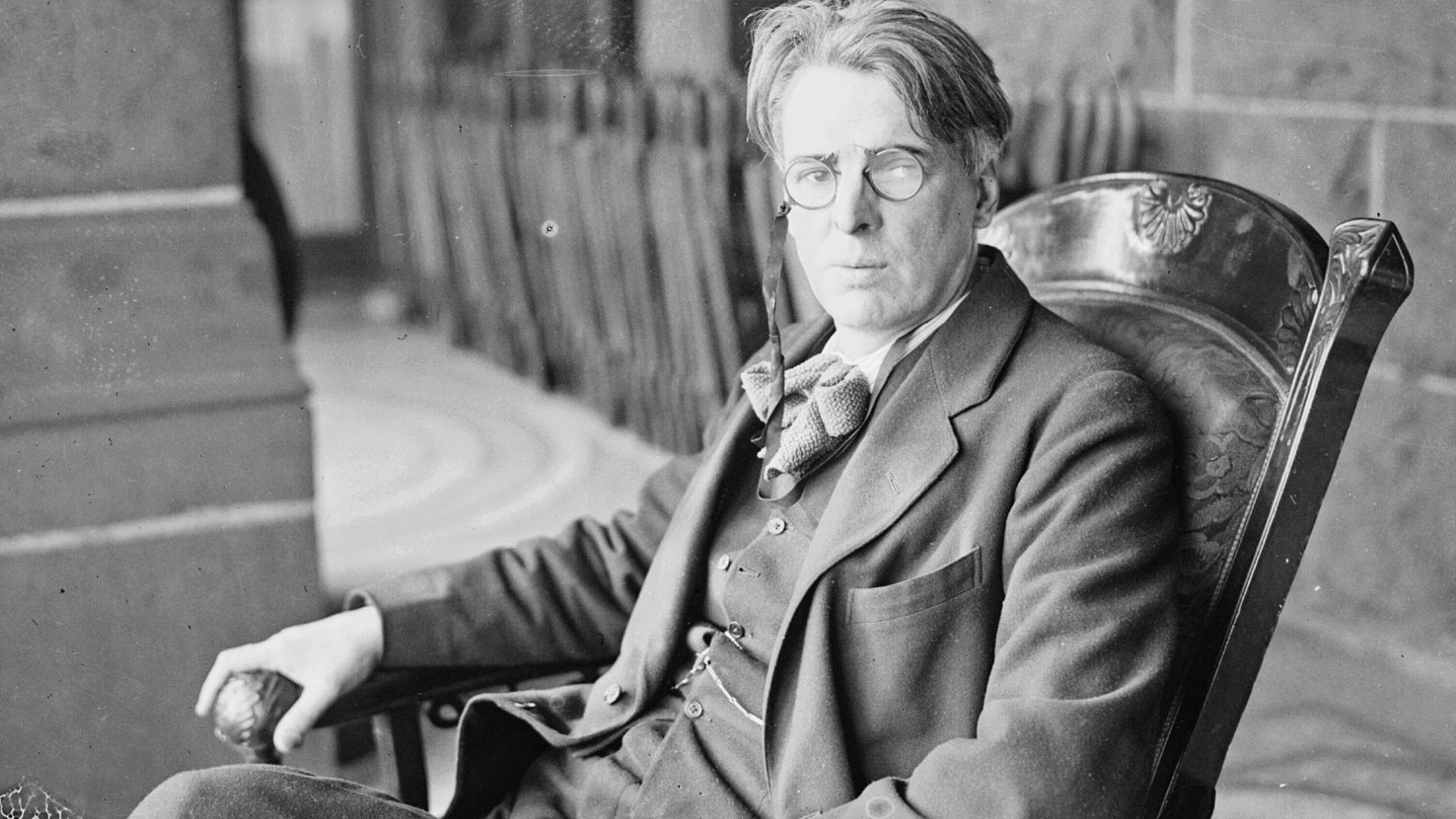An Irish Airman Forsees His Death Poem by William Butler Yeats
An Irish Airman Forsees His Death
I know that I shall meet my fate
Somewhere among the clouds above;
Those that I fight I do not hate,
Those that I guard I do not love;
My county is Kiltartan Cross,
My countrymen Kiltartan's poor,
No likely end could bring them loss
Or leave them happier than before.
Nor law, nor duty bade me fight,
Nor public men, nor cheering crowds,
A lonely impulse of delight
Drove to this tumult in the clouds;
I balanced all, brought all to mind,
The years to come seemed waste of breath,
A waste of breath the years behind
In balance with this life, this death.

I find this typically Yeats...........he conveys the thoughts of the young airman, who finds himself embroiled in the carnage of the Western Front.Despite the almost inevitiability of his own death, he conciously will continue his ariel war against an'enemy ' he neither knows nor loathes.A war conducted against other young men, not unlike himself......the best their country has to offer, also. The melancholy and poignancy which Yeats creates is particularly emotive. in this week of rememberance.The terrible waste and futility of war, was never bettered, even by the acknowledged ww1 poets, at their most convincing. Yeats is a particlar favourite of mine.
By far my favourte poem... The recurring theme of balance and temperence- classic Yeats and beautifully written in the thoughtful-dream like fashion. Entrancing and prophetic for such a short poem. It has made me think on many occasions- What is the nature of choice? Is it possible to balance all? Is death really so predictable and simple?
A haunting dramatic monologue. The Irish airman is ambivalent about fighting in the air against Germany. 'A lonely impulse of delight ' is what drove him to the high clouds and danger. He does not hate the enemy, nor does he love his own people. A great poem about patriotism and individual motivation.
Something about this haunts me. The imagery, yes, but the phrasing steals the show. Incredible verse!
This poem has grown on me hugely over the years since my father died. He was from the Republic of Ireland and volunteered for Bomber Command in World War 2, where he flew 32 missions as a rear gunner in Lancasters. This poem has really made me think about his motivations and how he must have felt at night in the skies over Germany. Unfortunately he died 14 years ago so I will never know, since he never spoke much about it and we did not ask enough of the questions while he was alive. Whenever I read the poem it brings back a lot of memories!
This poem has not been translated into any other language yet.
I would like to translate this poem
The airman realises that the statistical chances of survival are against him the longer he continues as a fighter pilot. His country is Southern Ireland, which unlike the North was not directly involved in WW 1, and therefore will be unaffected by its outcome. Why then does he fight? Not for the usual patriotic reasons; rather because: A lonely impulse of delight/Drove to this tumult in the clouds. From the way Yeats writes it, it is the irresistible impulse that is doing the driving (‘tumult’ suggests something enjoyable, unlike, for instance, ‘dogfight’.) The airman has made a rational decision, and the last lines are beautifully balanced to suggest that neither past nor future can match the danger and excitement of the present.
Ireland was not independent at the time of WW I what you are talking about is WW II when the the Republic was neutral.